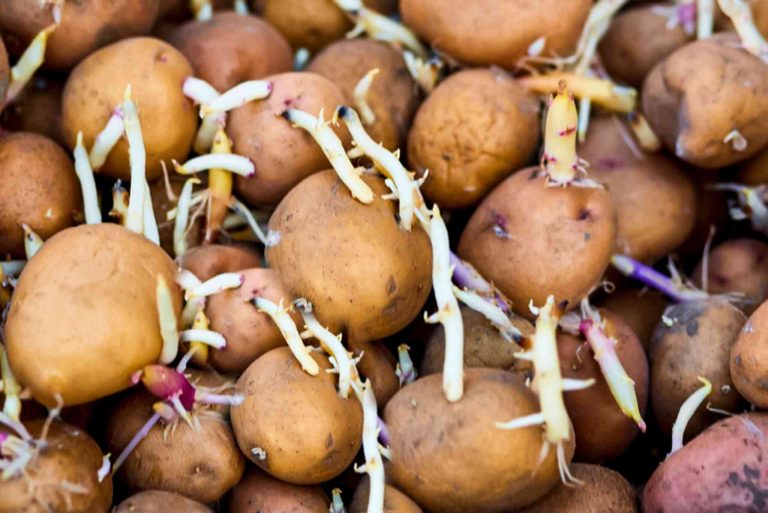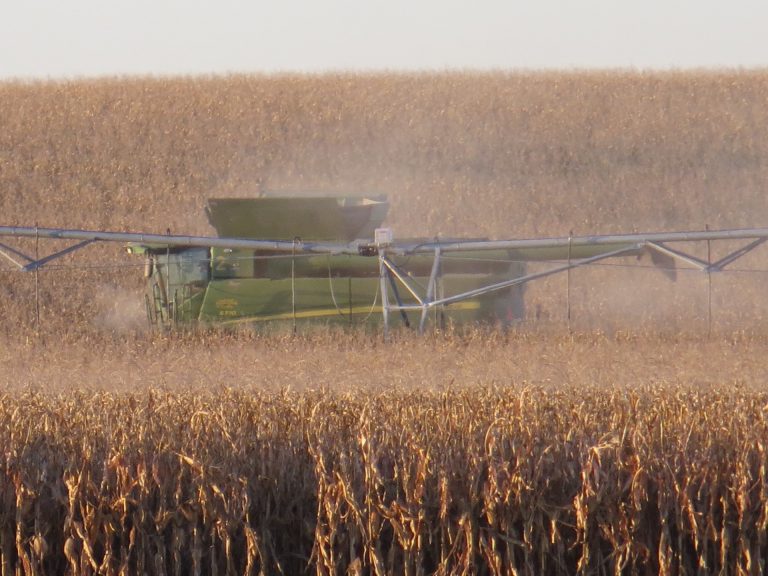By Chris Himmelwright
Pratt County Master Gardener
Pratt County Research and Extension Services
Preventing Potatoes from Sprouting in Storage
Home gardeners have had to rely on proper storage conditions (cool and moist) to prevent potatoes from sprouting. But sprouting will eventually occur even if the gardener does everything right.
Research by Mary Jo Frazier, Nora Olsen and Gale Kleinkopf from the University of Idaho have found products that should help home gardeners. These researchers were looking for an organic method to control potato sprouts. They found essential oils from some herbs and spices to be effective sprout inhibitors. Specifically they found that spearmint oil, peppermint oil and clove oil suppressed sprouting by physically damaging rapidly dividing cells in the sprout. Each of these products is so safe that the FDA has approved them for addition to food.
Several application methods were considered though most were only suitable for commercial storage facilities. The only practical method for homeowners was one the researchers labeled a “low-tech” wick method. This was accomplished by placing a small piece of blotter paper saturated with spearmint or peppermint oil in a box with the potatoes. This method was not recommended for the clove oil. Though it was found that peppermint and spearmint oils were equally effective in suppressing sprouts, the peppermint oil was less likely to affect flavor of the potatoes. Reapplication at two- to three-week intervals will be needed for continued sprout suppression. Little to no residue was found on the potatoes from these products due to their high volatility. The first application should be done before sprouting occurs. Blotting paper is much more difficult to find than it was in the past and so you may want to substitute blank newsprint. However, if blotting paper is desired, try herbarium supply houses. Blotting paper is used to press plant specimens.
Poinsettia Care
Modern poinsettia varieties stay attractive for a long time if given proper care. Place your poinsettia in a sunny window or the brightest area of the room, but don’t let it touch cold windowpanes. The day temperature should be 65 to 75 degrees F with 60 to 65 degrees at night. Temperatures above 75 degrees will shorten bloom life, and below 60 degrees may cause root rot. Move plants away from drafty windows at night or draw drapes between them to avoid damage from the cold.
Poinsettias are somewhat finicky in regard to soil moisture. Avoid overwatering because poinsettias do not like “wet feet.” On the other hand, if the plant is allowed to wilt, it will drop leaves. So how do you maintain proper moisture? Examine the potting soil daily by sticking your finger about one inch deep into the soil. If it is dry to this depth, the plant needs water. When it becomes dry to the touch, water the plant with lukewarm water until some water runs out of the drainage hole, then discard the drainage water.
Adapted from the Kansas State Horticulture Newsletter




